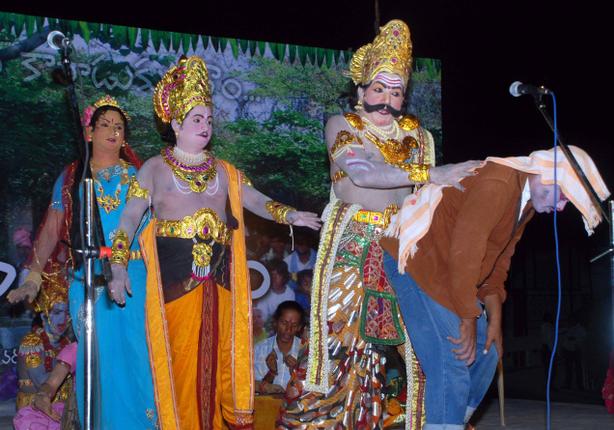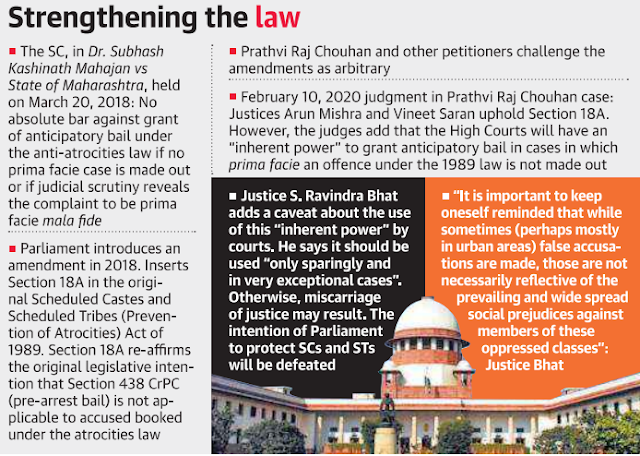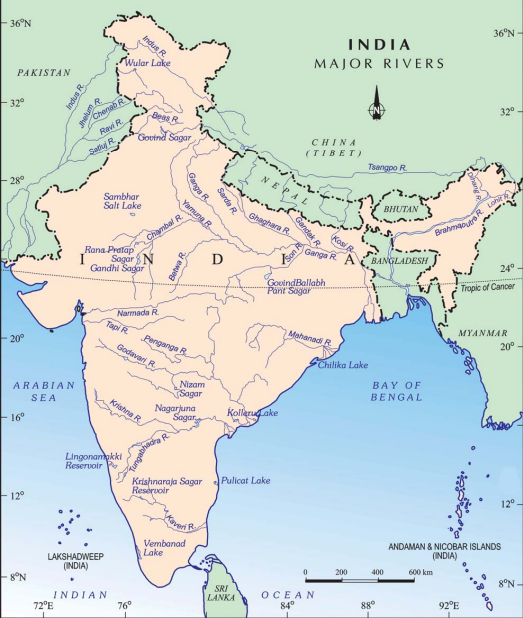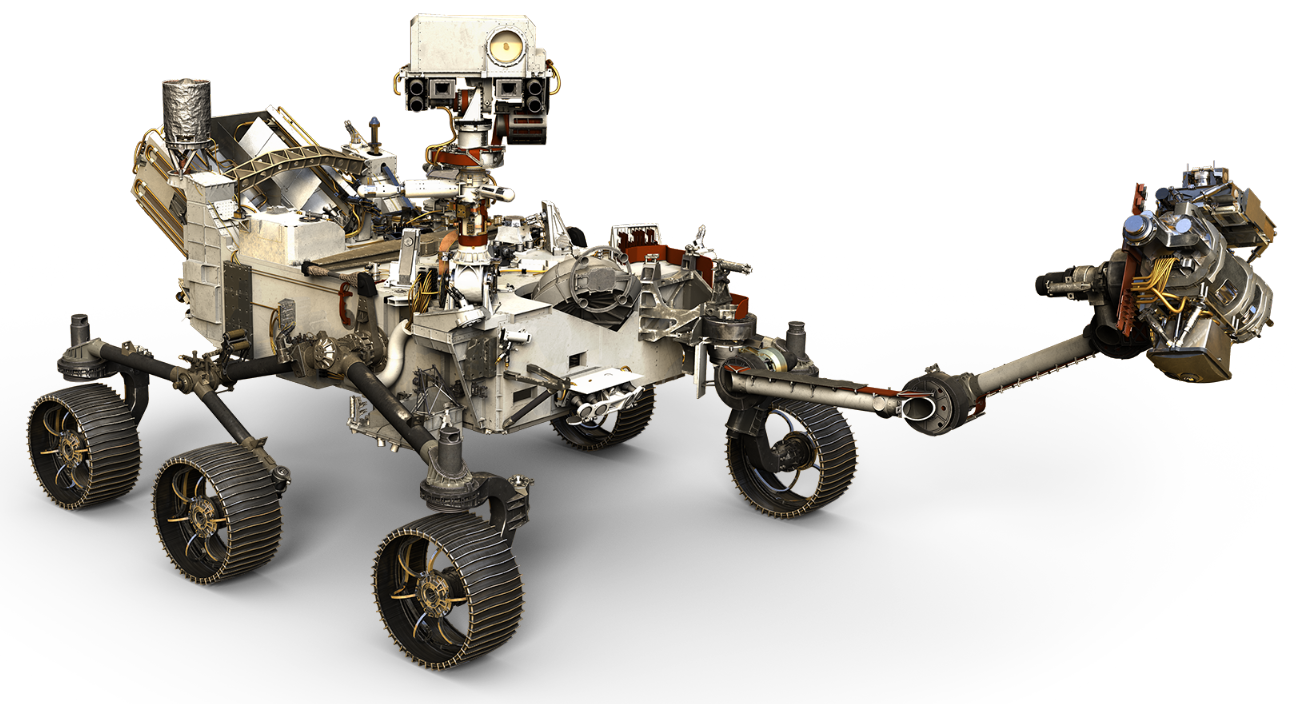Indian Polity
SC Upholds Changes to SC/ST Atrocities Law
Why in News
The Supreme Court has upheld the constitutional validity of the Scheduled Castes and the Scheduled Tribes (Prevention of Atrocities) Amendment Act, 2018.
- The Amendment Act nullified the Court’s 20th March, 2018 judgment which had diluted the stringent provisions of the original Scheduled Castes and the Scheduled Tribes (Prevention of Atrocities) Act, 1989.
- Petitions were filed challenging the 2018 Amendment Act on the grounds of violation of the fundamental right to equality (Article 14) and personal liberty (Article 21).
Salient Features of the Amendment Act, 2018
- It added Section 18A to the original Act.
- It delineates specific crimes against Scheduled Castes and Scheduled Tribes as atrocities and describes strategies and prescribes punishments to counter these acts.
- It identifies what acts constitute “atrocities” and all offences listed in the Act are cognizable. The police can arrest the offender without a warrant and start an investigation into the case without taking any orders from the court.
- The Act calls upon all the states to convert an existing sessions court in each district into a Special Court to try cases registered under it and provides for the appointment of Public Prosecutors/Special Public Prosecutors for conducting cases in special courts.
- It creates provisions for states to declare areas with high levels of caste violence to be “atrocity-prone” and to appoint qualified officers to monitor and maintain law and order.
- It provides for the punishment for wilful neglect of duties by non-SC/ST public servants.
- It is implemented by the State Governments and Union Territory Administrations, which are provided due central assistance.
Section 18A states that
- For the Prevention of Atrocities Act, the preliminary enquiry shall not be required for registration of a First Information Report against any person.
- The provision of section 438 (pre-arrest bail) of the Code of Criminal Procedure (CrPC) shall not apply to a case under the Act, notwithstanding any judgment or order or direction of any Court.
Geography
Godavari and Cauvery River Interlinking Project
Why in News
The National Water Development Agency (NWDA) has circulated a draft Detailed Project Report (DPR) on Godavari-Cauvery link project to the concerned states to elicit their views.
- The project envisages the diversion of 247 thousand million cubic feet (tmcft) of unutilised water in the Indravati sub-basin of the Godavari basin to meet the requirements between the Godavari and the Cauvery rivers.
- Water will be diverted from Godavari river to Nagarjuna Sagar dam(through lifting) and further south to meet the demands of Krishna, Pennar and Cauvery basins.
- The Godavari - Cauvery link comprises three components namely,
- the Godavari (Inchampalli/Janampet) - Krishna (Nagarjunasagar),
- the Krishna (Nagarjunasagar) – Pennar (Somasila) and
- the Pennar (Somasila)–Cauvery.
- The project will provide irrigation facilities to 3.45 to 5.04 lakh hectares in Prakasam, Nellore, Krishna, Guntur, and Chittoor districts of Andhra Pradesh.
National Water Development Agency
- NWDA is a registered society under the Ministry of Jal Shakti.
- It was set up in the year 1982 to carry out detailed studies, surveys and investigations in respect of the Peninsular Component of National Perspective for Water Resources Development, which envisages inter-basin water transfer.
Godavari River
- Source: Godavari river rises from Trimbakeshwar near Nasik in Maharashtra and flows for a length of about 1465 km before outfalling into the Bay of Bengal.
- Drainage Basin: The Godavari basin extends over states of Maharashtra, Andhra Pradesh, Chhattisgarh and Odisha in addition to smaller parts in Madhya Pradesh, Karnataka and Union territory of Puducherry.
- Tributaries: Pravara, Purna, Manjra, Penganga, Wardha, Wainganga, Pranhita (combined flow of Wainganga, Penganga, Wardha), Indravati, Maner and the Sabri.
Krishna River
- Source: It originates near Mahabaleshwar (Satara) in Maharashtra.
- Drainage Basin: It runs from four states namely, Maharashtra, Karnataka,Telangana and Andhra Pradesh before emptying into the Bay of Bengal.
- Tributaries: Tungabhadra, Mallaprabha, Koyna, Bhima, Ghataprabha, Yerla, Warna, Dindi, Musi and Dudhganga.
- Nagarjunasagar dam is on the river Krishna.
Pennar River
- Source: It rises in Nandi Hills in Chikballapur District of Karnataka and runs north and east before emptying into the Bay of Bengal.
- Drainage Basin: It is 597 kilometres long, with a drainage basin covering 55,213 km2 in Karnataka and Andhra Pradesh.
- Tributaries: Jayamangali, Kunderu, Sagileru,Chitravathi, Papagni and Cheyyeru.
Cauvery River
- Source: The river rises on Brahmagiri Hill of the Western Ghats in southwestern Karnataka.
- Drainage Basin: It flows in a southeasterly direction through the states of Karnataka and Tamil Nadu, and descends the Eastern Ghats in a series of great falls. Before emptying into the Bay of Bengal south of Cuddalore, Tamil Nadu, the river breaks into a large number of distributaries forming a wide delta called the “garden of southern India.”
- Tributaries: Arkavathi, Hemavathi, Lakshmana Theertha, Shimsa, Kabini and Harangi.
Science & Technology
US Nod to Integrated Air Defence Weapon System
Why in News
The US has approved the sale of an Integrated Air Defence Weapon System (IADWS) to India at an estimated cost of $1.9 billion.
- The objective of the deal is to modernise India’s armed forces and to expand its existing air defence architecture to counter threats posed by air attacks.
Key Points
- IADWS will be used along with indigenous, Russian and Israeli systems to erect an ambitious multi-layered missile shield over the National Capital Territory (NCT) of Delhi against aerial threats.
- It comes amidst the massive military modernisation by China which is also flexing its military muscles in the strategic Indo-Pacific region.
Integrated Air Defence Weapon System
- The Integrated Air Defence Weapon System (IADWS) is called the National Advanced Surface to Air Missile System (NASAMS-II).
- It is an upgraded version of the NASAMS developed by the US firm Raytheon in partnership with Kongsberg Defence & Aerospace of Norway.
- The IADWS system provides integrated air missile defence and is currently deployed around Washington, DC.
- It includes launchers, targeting and guidance systems, advanced medium-range air-to-air missile (AMRAAM) and Stinger missiles, 3D Sentinel radars, fire-distribution centres and command-and-control units.
Proposed Multi-Layered Air Defence Shield for NCT of Delhi
- The innermost layer of protection will be through the NASAM-II.
- The indigenous Akash defence missile systems, with a 25-km range, will form the layer over the NASAMS-II.
- The next layer will be through highly automated and mobile S-400 systems.
- Then will come the Barak-8 medium-range surface-to-air missile systems.
- The outermost layer will be provided by the indigenous two-tier Ballistic Missile Defence (BMD) System.
Advanced Medium-Range Air-to-Air Missile
- Advanced Medium-Range Air-to-Air Missile (AMRAAM) is an American beyond-visual-range air-to-air missile capable of all-weather day-and-night operations.
- Manufactured by Raytheon, more than 30 countries are using the AMRAAM.
Stinger Missiles
- Stinger is a shoulder-fired Man-Portable Air Defense System (MANPADS) developed by the United States.
- It is a fire-and-forget, lightweight (15kg) weapon with the reusable launcher.
- Stinger missile is an extremely effective weapon for shooting down aircraft.
Governance
National Deworming Day
Why in News
Every year February 10 and August 10 are observed as the National Deworming Days (NDD).
- The days aim at eradicating intestinal worms also known as Soil-Transmitted Helminths (STH), among children in the age group of 1-19 years.
- Children and adolescents are administered a single dose of a safe medicine Albendazole across government, government-aided schools, anganwadis, private schools and other educational institutions.
- Deworming through Albendazole is an evidence-based, globally-accepted, effective solution used to control worm infections in all children.
- Started in 2015 by the Ministry Of Health And Family Welfare, the NDD is the largest public health program implemented on a single day reaching crores of children and adolescents through two NDD rounds every year.
- NDD is a key intervention of Anemia Mukt Bharat.
- The program is implemented in collaboration with the Ministry of Women and Child Development and Ministry of Human Resource Development.
- Its success and impact lie in convergence with the Swachh Bharat Mission. NDD also presents opportunities to further policy dialogue on health and nutrition as a way of supplementing efforts under POSHAN Abhiyan.
Intestinal Worms
- Intestinal worms are parasites that live in the human intestines and consume nutrients and vitamins that a child consumes.
- There are three main types of STH that infect people, roundworm (Ascaris lumbricoides), whipworm (Trichuris trichiura) and hookworms (Necator americanus and Ancylostoma duodenale). These worms depend on the human body for their food and survival and while being there, they lay thousands of eggs each day.
- Transmission: STHs are transmitted via eggs in faeces deposited in the local environment, typically through open defecation or lack of proper hygiene.
- Impact:
- Since worms feed on host (human body) tissues, including blood, it leads to loss of iron, and protein, resulting in anaemia – reduced oxygen carrying capacity due to less Haemoglobin (Hb) available in the body.
- Worm infection can also lead to diarrhoea; dysentery; loss of appetite; reduced nutritional intake and physical fitness; increased malabsorption – a condition that prevents absorption of nutrients through the small intestine.
- In India, over 22 crore children under 14 years of age are at risk of STH infections.
Important Facts For Prelims
Solar Orbiter Mission
Why in News
NASA has launched the Solar Orbiter to space on an Atlas 5 rocket from Florida on February 10.
- The mission is a cooperative mission between NASA and the European Space Agency (ESA) which will help researchers to know how the star's energy affects Earth and humans in space.
Key Points
- The Solar Orbiter Mission is a cooperative mission between NASA and the European Space Agency (ESA).
- It a seven-year mission.
- Significance:
- It will observe the Sun with high spatial resolution telescopes and capture observations in the environment directly surrounding the spacecraft to know how the Sun can affect the space environment throughout the solar system.
- It also intends to give a better understanding of how stars can affect the space environment throughout the solar system.
- The spacecraft also will be the first to provide images of the Sun’s poles.
- The mapping of Sun’s pole could allow for the first time to observe the concentrated source of solar wind that permeates our solar system.
- The solar wind is the mixture of charged particles that are highly concentrated at the poles and beam through our solar system, affecting satellites and electronic devices on Earth.
- The mission will also study the magnetic environment around the Sun, which in turn will provide information about the Sun’s 11-year solar cycle and its periodic outpouring of solar storms.
- Solar Orbiter carries ten instruments, three of which will help to survey how Sun’s surface changes over time.
Important Facts For Prelims
The SuperCam on Mars 2020 Rover
Why in News
NASA is sending a robot called SuperCam aboard the Mars 2020 rover to study rocks and look for signs of past life on Mars.
- The robot uses a camera, laser and spectrometers for studying mineralogy and chemistry from up to about 7 metres away.
Key Points
- SuperCam's laser is uniquely capable of remotely clearing away surface dust, giving all of its instruments a clear view of the targets.
- It can fire a laser to study rock targets smaller than a pencil point.
- It will look at rock textures and chemicals to find those that formed or changed in the water on Mars' long ago.
- It will at different rock and ‘soil’ types to find ones that could preserve signs of past microbial life on Mars - if any ever existed.
- It will identify which elements in the Martian dust may be harmful to humans.
- It will measure the air so that the scientists can learn about how atmospheric molecules, water ice, and dust absorb or reflect solar radiation. This data improves our ability to predict Martian weather.
Mars 2020 rover
- Mars 2020 rover will be launched by NASA in July-August 2020.
- It has been designed to better understand the geology of Mars and seek signs of ancient life. The mission will collect and store a set of rock and soil samples that could be returned to Earth in the future.
- It will also test new technology to benefit future robotic and human exploration of Mars.
Important Facts For Prelims
Gaganyaan
Why in News
Four Indian Air Force (IAF) pilots, chosen as candidate-astronauts for India’s first manned mission Gaganyaan, have begun training at the Gagarin Research and Test Cosmonaut Training Centre (GCTC) in Moscow, Russia.
- In June 2019, the Human Space Flight Centre of the Indian Space Research Organisation (ISRO) and the Russian government-owned Glavkosmos signed a contract for the training, which includes Russian support in the selection of candidates, their medical examination, and space training.
- The candidates will study in detail the systems of the Soyuz manned spaceship, as well as be trained in short-term weightlessness mode aboard the Il-76MDK aircraft.
- The Soyuz is a Russian spacecraft. The Soyuz carries people and supplies to and from the space station.
- The Il-76MDK is a military transport plane specially designed for parabolic flights of trainee astronauts and space tourists.
- The candidates will also be trained to take appropriate actions during emergencies — for example should the spacecraft make an abnormal landing in (unplanned) climate and geographic zones.
Gaganyaan
- Gaganyaan is the ₹10,000-crore Indian human space flight scheduled for 2022. It is designed to have 3-7 crew members spend 3-7 days in space in a 400-km orbit.
- The first of the two pre-Gaganyaan flights with a humanoid will be launched in 2020-end along with some of the six shortlisted microgravity experiments.
Important Facts For Prelims
Chindu Yakshaganam
The Chindu Yakshaganam is an age-old art form popular in Telangana.
- The art form dates back to second century BC. It is similar to Yakshaganam, a traditional theatre form particular to Karnataka.
- It is a theatre art form that combines dance, music, dialogue, costume, make-up, and stage techniques with a unique style and form.
- The word ‘Chindu’ in Telugu means ‘jump’. As their presentation is interspersed with leaps and jumps, it gained the name of Chindu Yakshaganam.
- Chindu is also derived from the artistes’ caste Chindu Madiga, a sub-caste of Madiga among SCs.
- The Chindu Yakshaganam is also called Chindu Bhagavatam as most of the stories narrated are from ‘Bhagavatam’.
- Bhagavatam refers to the Bhagavata Purana which can be translated as 'the history of the devotees of Vishnu'.
Important Facts For Prelims
Investor Education and Protection Fund (IEPF)
- Investor Education and Protection Fund (IEPF) has been established under provision of the Companies Act, 2013.
- The amounts such as dividends, applications money, matured deposits etc, which have remained unpaid or unclaimed for a period of 7 years are required to be transferred to the IEPF.
- The Amounts credited to IEPF are maintained under the Consolidated Fund of India (Article 266 of the Constitution).
- The fund is utilized for promoting investor awareness and protection of investor interests.
- The Fund is also utilised for distribution of any disgorged amount among eligible applicants for shares or debentures, shareholders, debenture-holders or depositors who have suffered losses due to wrong actions by any person, in accordance with the orders made by the Court.
- When a person or entity in the securities market makes a profit by fraudulent means, a ‘disgorgement’ order is issued to repay those gains to affected investors with interest.
- For administration of Investor Education and Protection Fund, the Government of India in 2016, established Investor Education and Protection Fund Authority under the provisions of section 125 of the Companies Act, 2013. The Authority is under the Ministry of Corporate Affairs.
Important Facts For Prelims
2 Billion Kilometres to Safety Campaign
United Nations High Commissioner for Refugees (UNHCR) has launched a global campaign calling on people all over the world to cover the distance travelled by refugees each year.
- UNHCR traced the journeys of refugees around the world and calculated that collectively, people forced to flee travel approximately two billion kilometres every year to reach the first point of safety.
- In 2016, Syrian refugees travelled more than 240 kilometres to reach Turkey. South Sudanese refugees travelled more than 640 kilometres to reach Kenya and Rohingya refugees in Myanmar travelled approximately 80 kilometres to reach Bangladesh.
- The 2 Billion Kilometres to Safety campaign invites people to act in solidarity and run, walk or cycle to achieve a cumulative total of two billion kilometres.
- The campaign will also encourage people to support refugees by championing individual acts of solidarity. These acts, when taken together, acknowledge the resilience and strength of refugees.
Refugees
- Refugees are people forced to flee to another country because of war or persecution.
- The majority of refugees stay close to home with most fleeing to neighbouring countries. Only 1% of them are ever resettled in third countries. Turkey hosts the maximum number of refugees followed by Pakistan, Uganda and Lebanon.
- Around the world, less than a third of people forced to flee live in refugee camps.
United Nations High Commissioner for Refugees
- United Nations High Commissioner for Refugees (UNHCR) is a UN Refugee Agency and a global organization dedicated to saving lives, protecting the rights and building a better future for refugees, forcibly displaced communities and stateless people.
- It was created in 1950 to help millions of Europeans who had fled or lost their homes.
- It is headquartered at Geneva, Switzerland.







